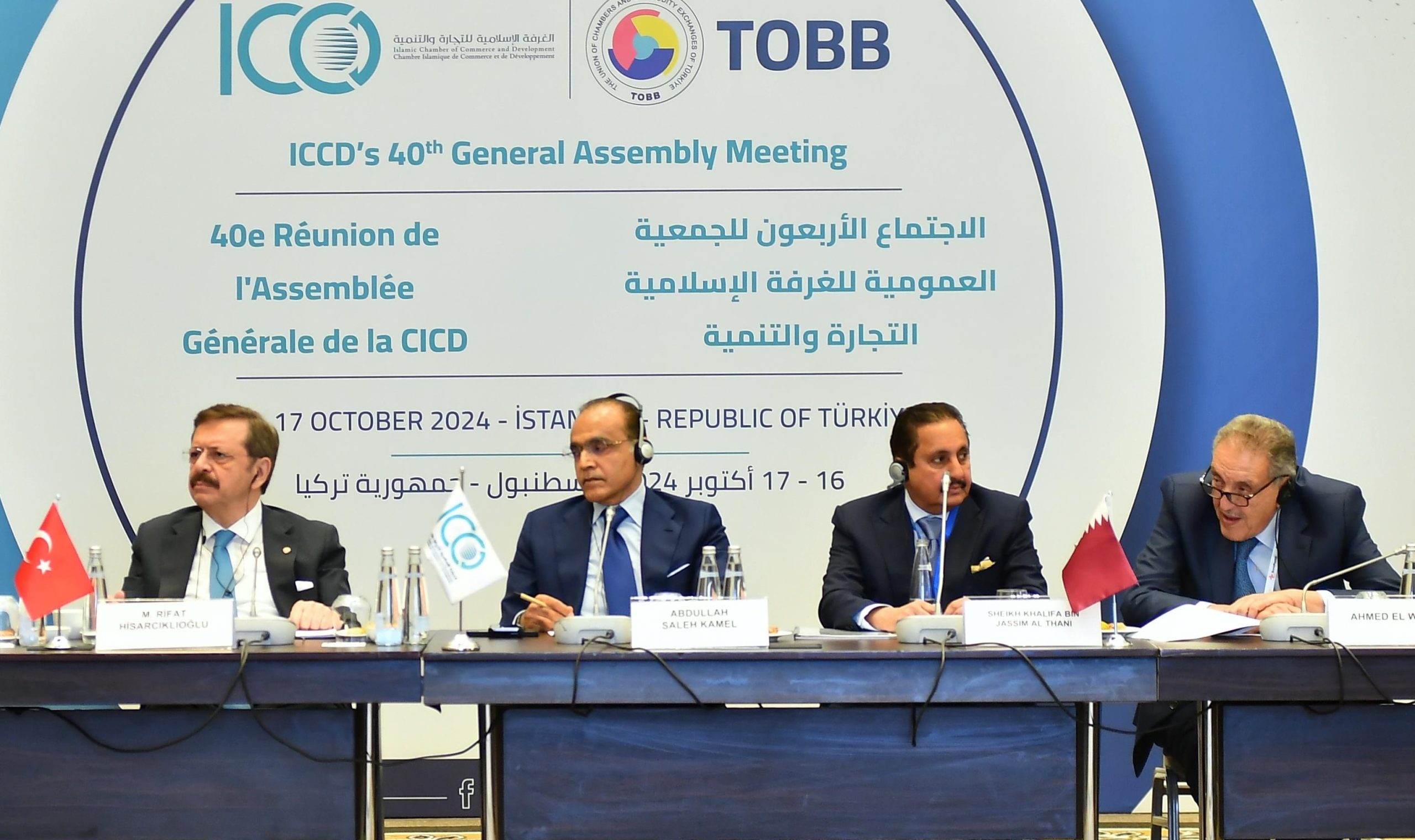
The system of recruiting and hiring semi- and unskilled expats to work in Qatar is riddled with “endemic corruption” and unethical practices that result in trafficking, debt bondage and forced labor, according to a new report commissioned by Qatar Foundation.
The 160-page document, Migrant Labor Recruitment to Qatar, calls for an overhaul of the process of recruiting blue collar workers to the country.
Produced as part of the Qatar Foundation Migrant Worker Welfare Initiative, the report comes as the Gulf state faces international criticism for labor rights abuses.
It does not deny that problems exist here, but points out that many expats’ troubles begin with the recruitment process in their home countries.
The report focuses particularly on the role played by recruitment agents in the five main “labor sending” countries of India, Bangladesh, Sri Lanka, Nepal and the Philippines.
These countries supply the vast majority of the 450,000 manual laborers employed in Qatar’s construction industry, according to 2011 figures.
Broken system
According to the report, current recruitment practices in sending countries are fueled by bribery, deceit and corruption, which give rise to basic human rights violations and exploit vulnerable workers.
Some of the main problems involve the hefty fees many expats must pay to recruitment companies to secure their passage to Qatar, and the false contracts presented to them in their home countries.
On the Qatar side of things, the withholding of passports, late or non-existent payments and the restrictive kafala sponsorship system only contribute to workers’ woes, the report states.
Author Dr. Ray Jureidini added that a serious overhaul of the system was needed, and called on the Qatari government to lead the reforms by developing ethical recruitment practices with the sending countries.
In a statement, Jassim Telefat, group executive director of QF’s Capital Projects and Facilities Management, said:
“Many people are currently being forced to make illegal payments to unscrupulous employment agents in their home countries in order to secure Qatari work visas.
“The result is that these individuals are placed in long-term debt. We are not prepared to tolerate this type of arrangement, and are working to address the issue as a matter of priority.”
Many of the changes proposed in the report have already been raised in other documents, including the government-commissioned DLA Piper report that was published earlier this year.
However, this document stands out as it was commissioned and published by QF, a local entity that is government-funded and has a significant profile, both internationally and at home.
The organization, which put out a workers’ charter last year, is also in the midst of several construction projects, including a new headquarters, a national library and Sidra Medical & Research Center.
To arrive at its findings, the study conducted interviews and discussion groups with expat workers, government representatives, recruitment agencies, academics, NGOs and international agencies.
The report states that government officials in Nepal, India and Bangladesh admitted problems existed and complained of “endemic corruption throughout the system.”
Illegal fees
One of the first recommendations made in the report is for Qatar to work with sending countries’ governments on an internet recruitment system. It also advised the Gulf state to establish a National Employment Bureau to coordinate all recruitment policies and procedures.
The second proposal tackles one of the biggest issues facing the system – the hefty fees charged by recruitment agents and local sub-agents, which causes workers to become mired in debt before they even leave home.
The amount charged ranges from $600 to $5,000 per worker, generally exceeding the legal limit in each sending country. To pay these fees, expats often have to sell family assets and take on loans with interest rates of 30 to 60 percent, which violates Islamic finance principles.
The report described this process as “essentially a form of extortion by agents to secure jobs in Qatar.”

It also questioned why unskilled and semi-skilled workers were made to pay for their own flights, medical tests, visas and other unspecified expenses, while employers in Qatar generally cover these costs for skilled and professional workers.
Finally, “kickback payments” from the agents to the employers in Qatar were criticized as being tantamount to bribes for securing contracts.
To secure contracts, recruiters often offer to pay companies between $200-$600 per employee needed. The agent then recoups that money from the workers by adding it on to their admin fees. According to the report:
“This practice must be seen as one of the most cynically exploitative practices in modern labor recruitment. It is the most vulnerable, the poorest, low-skilled, least-educated and least able to pay who are charged the fees (by the agents).”
It added that if 300,000 low-skilled workers move to Qatar in the next two to three years to work on infrastructure projects, this would amount to the transfer of $120 million in bribes from agents abroad to employers here – “serious corruption.”
The report called for all recruitment fees to be banned and for employing companies to bear all hiring costs, as they currently do for skilled workers and professionals.
Substitute contracts
Another major problem is that workers can be duped into coming to Qatar with the promise of a well-paid or attractive sounding job. But when they arrive, they are instead made to work for a much lower salary, or in a totally different role with longer hours and poorer conditions, the report found.
These expats are often not given their contract prior to leaving their own country, and it is rare for them to have access to the document in a language they can understand that details terms and conditions.
Even those who have signed a contract are often made to sign another under duress – a substitute contract either at the airport as they leave their home country, or once they arrive in Qatar.

The report found that most workers interviewed (55.7 percent) did not sign a contract in their home country, while 76.8 percent signed one in Qatar.
This means that nearly one third of all low-skilled workers were made to sign substitute, lower-grade contracts once they arrived. Burdened with debt, these workers have no choice but to accept their new positions and conditions.
This situation amounts to trafficking of people, debt bondage and forced labor, the report stated.
To tackle the problem, it recommended that Qatar’s government set ethical standards in agreement with sending country governments.

There should also be accreditation and monitoring processes established for all agents, sub-agents and employers to ensure they comply with these standards.
The Qatar government could also set up its own recruitment agencies in the main countries which adhere to the ethical principles, it added.
Finally, temporary labor suppliers, based in Qatar and who hire out workers to construction projects on a temporary basis, should be avoided where possible or at least required to act to the same ethical standards.
Another related recommendation is the standardization of contracts, with clearly defined terms and conditions including detailed termination conditions and liabilities.
Exit visas and NOCs
Closer to home, the report also focused on Qatar’s controversial kafala system, where workers are sponsored by individual Qataris or organizations.
Specifically, it called attention to the potential abuses caused by the system of exit visas and no objection certificates. It called for workers to be given automatic exit permits and NOCs, enabling them to change employers – particularly after their rights had been violated.
Saying kafala needs to be “seriously addressed,” the report also suggested that the Qatari government take over sponsorship of and responsibility for workers. It stopped short of calling for the system to be completely abolished, as many international human rights groups have done over the years.
Cognizant of the potential for abuse, Qatar authorities announced earlier this year that they would be making changes to the system, which would make it easier for expats to switch jobs and leave the country.
However, the pledges were criticized by human rights activists and expats, who felt the potential changes didn’t go far enough. At the same time, many prominent Qatari business owners expressed concern that the proposals were too radical.
Minimum wage
Qatar is already taking steps to address another report recommendation – that all workers should be paid directly by bank transfer, to avoid late and non-payment of wages.
Last week, the Cabinet ratified a draft law which would make it mandatory for all employers to pay their workers directly into their own bank account.
However, the lack of a free labor market means that there is no principle of equal pay for equal work. This means many people with the same qualifications but of different nationalities do the same job for different wages.

The report recommended that standardized wages be set, depending on qualifications, experience and skill rather than the worker’s nationality, with minimum wages set for all occupations within the construction sector.
This proposal has already been raised by other organizations, but was dismissed by the government when it announced its planned changes to the labor law in May.
The final recommendations made by the report are for the monitoring of contractors and sub-contractors over visa allocation – making sure that workers have the right visas for their jobs, and to set up detailed pre- and post-departure orientations for workers.
This would help them understand their rights, their employers’ responsibilities and to have better information on finance, health and family issues.
Christopher Newman, Welfare Manager at Qatar Foundation’s HSSE Directorate, said in a statement:
“The recruitment process in sending countries such as Philippines is a complex one, and many potential employees fall victim to such complexities as they are unaware of Qatari law which prevents illegal payments for visas, for example.
We are working to identify and ban any agents who engage in such practices and, at the same time, make prospective workers fully aware of their labor rights before they even arrive in Qatar.”
Here’s the full report:
Thoughts?







